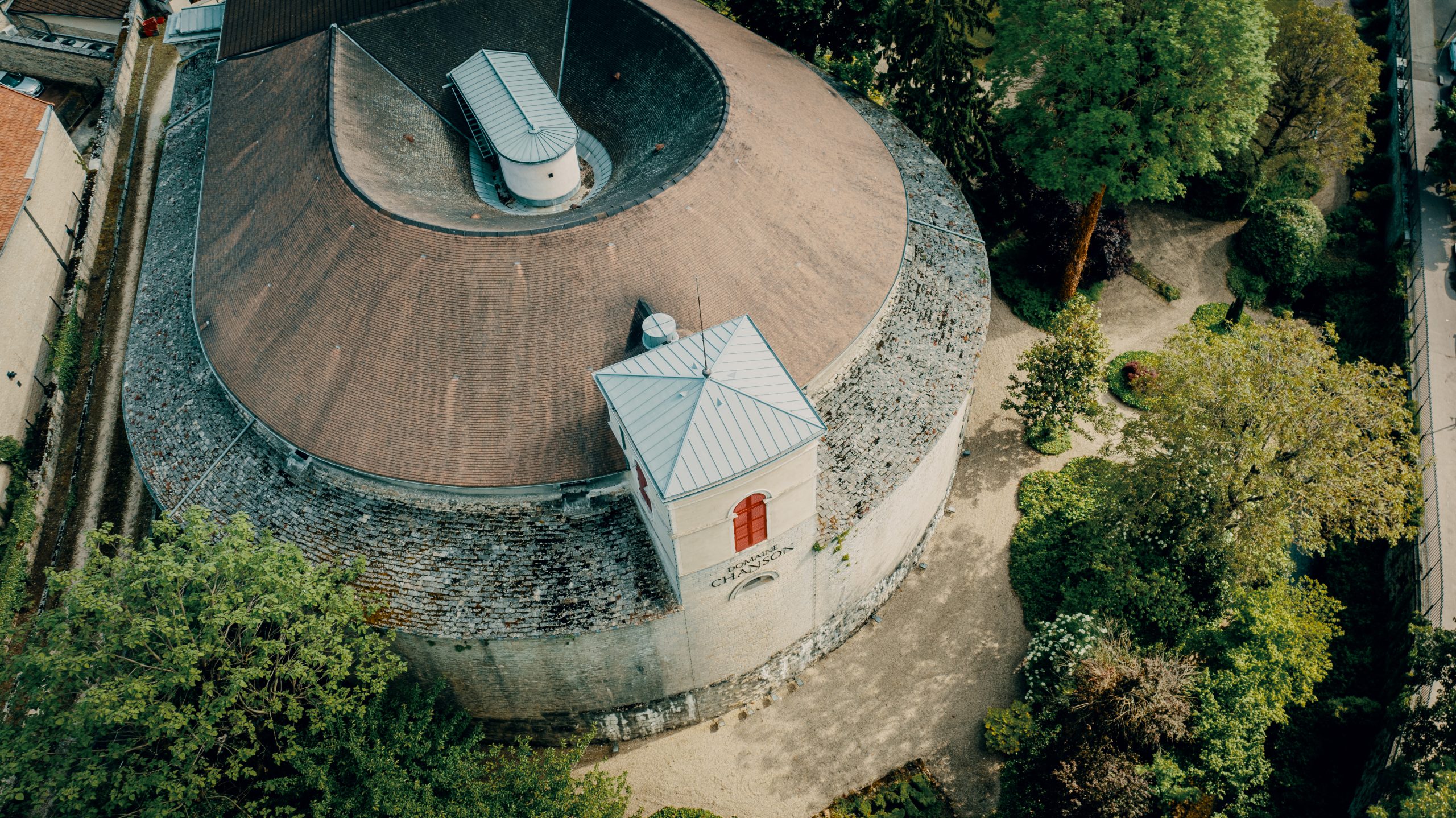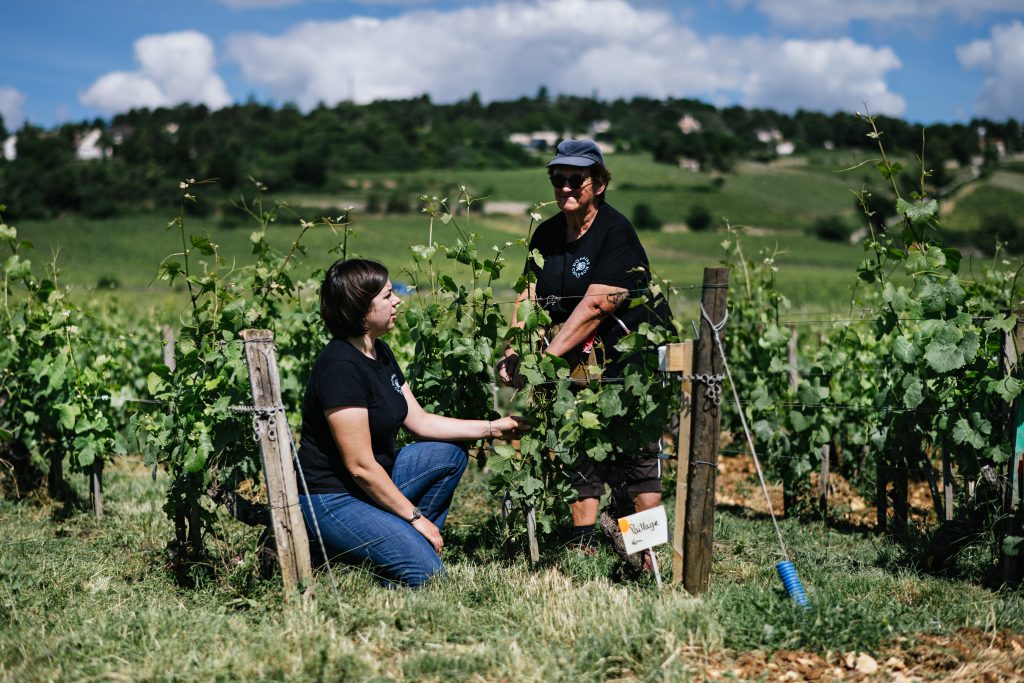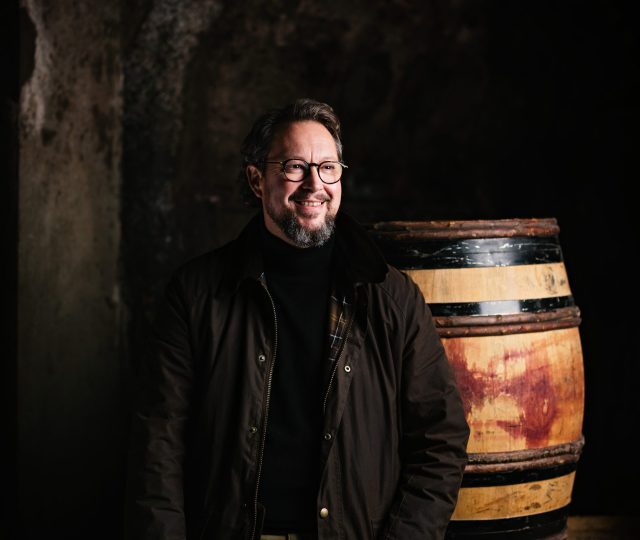This website uses cookies so that we can provide you with the best user experience possible. Cookie information is stored in your browser and performs functions such as recognising you when you return to our website and helping our team to understand which sections of the website you find most interesting and useful.
A new tune for Burgundy’s Chanson
With a history dating back to 1750 and a home in one of Beaune’s historic bastions, Chanson Père et Fils is a long-established Burgundy négociant house. But change is in the air as the company more than doubles its vineyard holdings and embraces a new business model. Richard Woodard reports.

The reshaping of Burgundy’s Chanson Père et Fils began during the long, locked-down days of the Covid-19 pandemic. While others were learning Mandarin, perfecting sourdough recipes or hosting Zoom cocktail parties, Vincent Avenel was brainstorming corporate strategy.
“My boss Étienne Bizot, the boss of Bollinger, said: ‘Vincent, it’s maybe time to take a bit of time to think about your business and your strategy,’” the MD of Bollinger Group-owned Chanson recalls. The conclusion was stark: Burgundy’s traditional négociant business model was at risk.
The region’s recent success has made life complicated for négociants. Smaller growers increasingly make and sell wine in their own names to an eager international market; a run of small harvests culminated in the frost-affected 2021.
As the market heated up, the amount of raw material available to négociants shrank, and prices hit unsustainable levels. “As a négociant, if you rely on this kind of business, it’s dangerous,” Avenel points out.
Something had to change, but what? “The conclusion was that it would be perfect to buy 40 hectares [of vineyard] on the Côte Chalonnaise,” Avenel says. “But I said to my shareholders that to buy 40ha in Burgundy is like a dream or a utopia. I said that it’s going to take us 15 years to build this estate.”
Or perhaps not. In 2023, Chanson acquired Château d’Etroyes, a Côte Chalonnaise domaine with not 40ha, but 50ha of vineyards focused on Mercurey and Rully. It was serendipity, but economic reality too. D’Etroyes had been in the Protheau family since the 18th century, before being sold to the Helfrich family in 2016, then passed on again to a group of eight international investors two years later.
This group, says Avenel, was confronted by a series of small harvests and the need to invest in the vineyards. While he doesn’t doubt their good intentions – “I was positively surprised by the quality of the wines” – he also points out: “They saw that financially it would take too long for them to bring it back to a good level.”
As that implies, there’s plenty to do at d’Etroyes. It may not have taken 15 years to find the vineyards, but it will take every bit of that to renew them. The replanting programme will replace 2ha of vines a year over the next five years, then 1ha a year thereafter. Red wines will be vinified at the Chanson winery in Beaune (the d’Etroyes winery is “slightly dated”, says Avenel); whites will be pressed in Mercurey, and the musts transported to Beaune.
Perhaps the most eye-catching vineyard included in the deal lies in the Mercurey premier cru Le Clos l’Evêque, where Chanson now has 6ha of Pinot Noir – or rather slightly less than that. This year, 1.2ha of Chardonnay has been planted towards the top of the slope, where the pale soils are high in limestone – making the terroir potentially “very interesting” for whites, according to Chanson cellar master Lucy Auger.
The vineyard team at d’Etroyes will be expanded to 15 – funded by the cutting of redundant back-office posts following the acquisition – and organic conversion has begun, in line with Domaine Chanson’s Côte de Beaune vineyards, which will be officially certified from the 2024 harvest.

Organic viticulture is a ticklish subject this year: the wet weather (100mm of rain in Beaune during June) has made mildew an ever-present threat, with Domaine Chanson vineyard manager Justine Savoye calculating that the company’s Clos des Mouches vineyard has had 10 treatments to early July, with more to come. Permitted remedies such as copper and sulphur are washed off the leaves by the rain – which also promotes renewed, and therefore unprotected, vine growth.
In the longer term, however, climate change has led to a scarcity of water, as well as higher summer temperatures. Domaine Chanson, in association with generic body the BIVB, is conducting a series of experiments in its Beaune premier cru Teurons vineyard investigating the efficacy of spraying talc on the vines; planting herbs; elevating canopy height; and laying down hemp blankets.
Meanwhile, a separate project is trialling six or seven new rootstocks, following problems with the widely planted (and otherwise well-suited) 161-49C rootstock in the region. Afflicted vines suffer from severely reduced vigour, stop producing grapes and are dead within a few years.
These are the longer-term viticultural challenges being tackled by Chanson in parallel with absorbing and adapting the Château d’Etroyes operation, alongside the domaine’s core 45ha of vineyards on the Côte de Beaune (25ha of that Beaune premiers crus), including such illustrious names as Clos des Mouches and Clos des Fèves, the latter a Chanson monopole.
The business may have a long history – Chanson was founded in 1750 and acquired its distinctive winemaking and ageing facility in Beaune’s 16th-century Bastion de l’Oratoire shortly afterwards – but today’s team is a relatively new one: Avenel, with 25 years’ experience in Bordeaux, Muscadet and elsewhere in Burgundy (Bouchard, Faiveley), arrived in 2017, followed by Savoye in 2019 and Auger in 2020.

So what, for the ‘new’ Chanson, will success look like? For a start, Avenel believes the d’Etroyes acquisition will make it more economically sustainable: previously the business was 25% Domaine Chanson (ie wines from its own vineyards) and 75% négoce; now it is 50/50. Production sits at about 600,000 to 1m bottles a year, depending on vintage conditions.
“The volume should be the consequence of the success, but not the prime objective,” Avenel explains. “It’s not a question of volume; it’s a question of style and reputation. We want to be number one in the areas that we do – Beaune premier cru, etc. If we are among the top three, that’s good.
“In the vineyard, it takes a lot of time. With the image, it also takes time. With experience, I know that it takes 10 years to flip something.” Especially, he adds, when you are fighting the popular “négociant image” of being big, with “boring” wines. In this context, the recent changes at Chanson blur the lines between the négociant and domaine models.
“We want to renew and change the mindset among people,” Avenel continues. “Hopefully, this will grow and evolve, and change slowly. It’s like a snowball – it starts small and it takes a bit of time, but when it grows, it starts to change.”
That snowball could have expanded even further in 2023. Shortly after the d’Etroyes acquisition, Chanson was in the running to buy William Fèvre in Chablis, only to be beaten to it by Domaines Barons de Rothschild (DBR Lafite). Avenel appears sanguine about the outcome, but might that hint at more changes to come at Chanson Père et Fils in the future – and indeed, greater consolidation across Burgundy as a whole?
Read more:
Burgundy 2022 proved to be the hair of the dog the fine wine market needed
Burgundy 2022 offers ‘opportunity’ to change consumer attitudes
Where to find ‘affordable’ wines in Burgundy 2022

